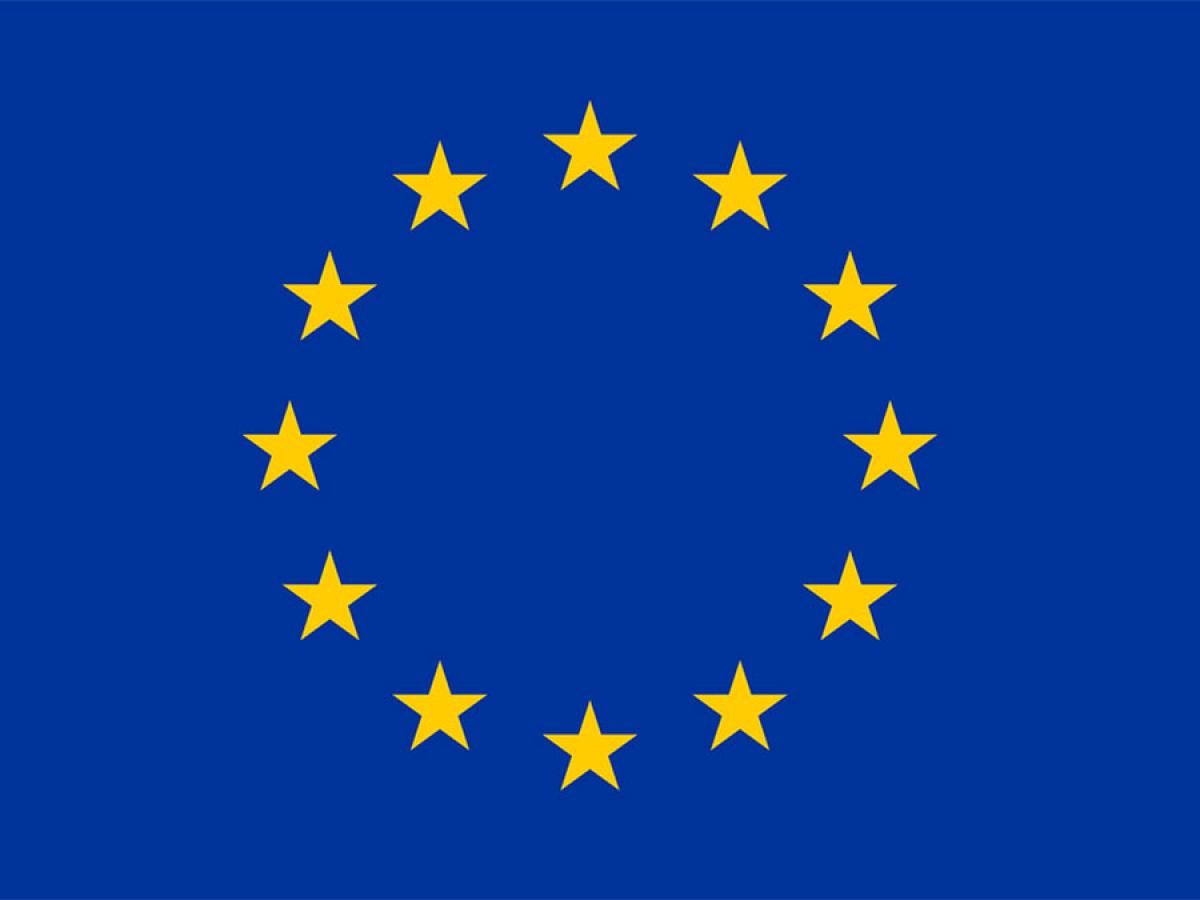Centre of Excellence of International Trade & Global Affairs
Funded under the EU Erasmus Plus Program, the Jean Monnet Centre of Excellence in International Trade and Global Affairs develop and deliver research projects, outreach and curricular activities integrating knowledge on the European Union.
The Jean Monnet Centre of Excellence in International Trade and Global Affairs draws on our academic strengths and experience in international trade, investment, law, business and international relations to develop and deliver research projects, outreach and curricular activités integrating knowledge on the European Union.In particular, the Centre will create synergies, promote trans-disciplinary dialogue and leverage expertise and networks to engage audiences across and beyond campus to.
The Centre will promote wider community engagement with this critical field through the dissemination of research outcomes, public seminars and workshops intended to provide audiences with the requisite knowledge and critical skills to engage in meaningful debate on important issues related to globalisation, regional integration and support effective trade policy development and regulatory governance.
Learn more about the European Union
Centre Director: Professor Peter Draper

-
DISCUSSION PAPERS
Title Author Discussion paper no. Richard Pomfret 2020-05 The Eurasian Landbridge: Implications of linking East Asia and Europe by rail
Richard Pomfret 2020-04 Is Competition from China So special? Benedikt Heid, Raúl Mínguez, Asier Minondo 2020-03 Structural Gravity and the Gains from Trade under Imperfect Competition Benedikt Heid & Frank Stahler 2020-02 Feeding your workhorse with quality data: analysis of trade costs in Central Asia Alfinura Sharafeyeva 2020-01 2019 Different paths to Economic Integration in Europe and Asia Richard Pomfret 2019-01 The Role of the European Union in the International Trade and Investment Order Steve Woolcock 2019-02 The Import effects of the Entry Price System Fabio Gaetano Santeramo, Laura Marquez-Ramos, Victor Martinez-Gomez, Emilia Lamonaca
2019-03 Richard Pomfret 2019-04 A Novel Institution: The Zollverein and the Origins of the Customs Union
Florian Ploeckl 2019-05 The European Commission's support for the production of these publications does not constitute an endorsement of the contents, which reflect the views only of the authors, and the Commission cannot be held responsible for any use which may be made of the information contained therein.
-
POLICY BRIEFS
Carbon Tax Creep Beyond Industrial Goods: Challenges and Risks for Extending Coverage to Agriculture Tim Ryan Open Strategic Autonomy and the New Geoeconomics: Consequences for EU Trade Policy Jens Hillebrand Pohl, Maastricht University Researcher Monitoring the Impact of the EU’s New Foreign Investment Screening Mechanism Jens Hillebrand Pohl, Maastricht University Researcher The Missing Anchor: Why the EU Should Join the CPTPP Peter Draper and Naoise McDonagh, *published by Lowy Institute The European Commission's support for the production of these publications does not constitute an endorsement of the contents, which reflect the views only of the authors, and the Commission cannot be held responsible for any use which may be made of the information contained therein.
-
WORKING PAPERS
The future of EU trade policy and strategies in a militarised environment
Peter Draper, Executive Director of the Institute for International Trade & Rolf J Langhammer
Improving Border Adjustment Mechanisms Mike Young, Emeritus Professor in Energy, Water and Environmental Policy at the University of Adelaide The European Commission's support for the production of these publications does not constitute an endorsement of the contents, which reflect the views only of the authors, and the Commission cannot be held responsible for any use which may be made of the information contained therein.
-
OPINION PIECES
TITLE AUTHOR(s) The EU and COVID-19 Richard Pomfret, Professor of Economics, The University of Adelaide Australia-UK relations and the CPTPP Richard Pomfret, Professor of Economics, The University of Adelaide Biden and Berlin: How Germany can help reset transatlantic relations Andreas Freytag, Professor and Chair of Economic Policy, Friedrich Schiller University, Jena and Visiting Professor with IIT Brexit Done, A UK-EU Trade Agreement to Go? Richard Pomfret, Professor of Economics, The University of Adelaide Can Germany’s New Coalition Modernize the Country to Meet 21st Century Challenges? Andreas Freytag, Professor and Chair of Economic Policy, Friedrich Schiller University, Jena and Visiting Professor with IIT Emerging from Lockdown: Threats to the international trade system Richard Pomfret, Professor of Economics, The University of Adelaide Pursuing an Open Strategic Autonomy trade policy against China: Expect policy fluidity Weinian Hu is Research Fellow at the Centre for European Policy Studies, Belgium Putting “Values” into Value Chains in an Era of System Rivalry’ Naoise McDonagh, Lecturer in Political Economy, Institute for International Trade Catharina Rinzema & Morten Lokkegaard, Member of European Parliament, Professor Peter Draper, Executive Director of the Institute for International Trade The EU’s ‘Chips Act’: A Rent-Seekers Paradise or a Feasible Industrial Policy? Andreas Freytag, Professor and Chair of Economic Policy, Friedrich Schiller University, Jena and Visiting Professor with IIT The market is a powerful instrument to counter human rights violations in China Andreas Freytag, Professor and Chair of Economic Policy, Friedrich Schiller University, Jena and Visiting Professor with IIT The UK after Brexit Richard Pomfret, Professor of Economics, The University of Adelaide Where does the EU’s Eastern Expansion end? Richard Pomfret, Professor of Economics, The University of Adelaide Reforming EU Rules of Origin Applied to Trade Agreements with Africa Mike Humphrey, Senior Trade Consultant Why Australia fails to understand the EU Richard Pomfret, Professor of Economics, The University of Adelaide The European Commission's support for the production of these publications does not constitute an endorsement of the contents, which reflect the views only of the authors, and the Commission cannot be held responsible for any use which may be made of the information contained therein.
-
KEY EVENTS ATTENDED
Representation at key events by The Centre of Excellence in International Trade & Global Affairs
Potential benefits of an Australia – UK Free Trade Agreement The University of Adelaide - Online The future of EU enlargement and partnership policies: EU actorness in South-Eastern Europe and the Eastern Neighbourhood Virtual Event AACaPS Annual Conference Griffith University - Australia Uppsala University - Sweden
EU-China economic relations: geo-economic competition, rival models of capitalism and the case of investment screening Australian Institute of International Affairs - Sydney Virtual Symposium on Foreign Investment Screening CELIS Institute - Online -
EVENTS, WORKSHOPS HOSTED or SPONSORED BY CoE
Official Opening, CoE in International Trade and Global Affairs The University of Adelaide Economic Teachers Society Workshop The University of Adelaide Second Australia-Europe Economic Relations Dialogue The University of Adelaide Third Australia-Europe Economic Relations Dialogue Friedrich-Schiller-University Jena, Senatssaal Swedish Perspectives on the EU's Green Transition The University of Adelaide Reforming EU Rules of Origin applied to Trade Agreements with Africa The University of Adelaide - Webinar Economic Coercion & International Trade. Policy Round Table The University of Adelaide - Intercontinental Hotel Trade4Climate Webinar Series 1 of 3 Hosted by GPTA - online
Updates
17 Dec
(In search of) The green premium: transaction level evidence of the sustainability advantage
WORKING PAPER 25 This paper examines whether environmentally sustainable products earn a green premium in international trade and how patent protection shapes this outcome. Using transaction-level export data for Italian firms matched with patent information from 2005–2019, the authors show that unpatented green products face market constraints: higher prices are offset by lower export volumes. In contrast, green products backed by patent protection achieve higher quantities and export values. The findings demonstrate that innovation enables firms to convert environmental attributes into stronger export performance. 12 Dec
Export restrictions and trade in critical mineral green products for clean energy transition
WORKING PAPER 24 28 Oct WORKING PAPER 23: 15 Oct Wednesday 1st October, 2025 With COP30’s Action Agenda placing “Transitioning Energy, Industry and Transport” at centre stage, secure Australia-to-EU flows of critical minerals are vital to Europe’s net-zero rollout. The EU is deploying its Green Deal Industrial Plan, Net-Zero Industry Act and forthcoming Critical Raw Materials Act to meet surging demand, while Australia seeks to convert geological advantage into low-carbon value chains.
Our latest IIT Working Paper quantifies the economic impacts of export restrictions targeted at critical minerals trade. Costs are high, posing serious challenges to the global green transition. Global cooperation to address these mounting barriers is needed more than ever.
Critical minerals now sit at the centre of EU trade discourse, where global sustainability goals, competitiveness, and supply-chain vulnerabilities intersect. The paper applies discursive institutionalism and introduces “framing hybridisation” to explain how the EU’s narrative evolved through external shocks, agency shifts, and stakeholder engagement. Using co-occurrence analysis and time-series mapping of DG Trade communications (1989–2025), it identifies a three-phase trajectory: an initial economic frame (liberalisation/competitiveness), a subsequent environmental frame (mining practices and the green transition), and, most recently, a security frame (reducing strategic dependencies and strengthening supply-chain resilience). Since 2020, these frames increasingly appear together, signalling a broader shift in EU trade policy under conditions of global uncertainty.

With the support of the Erasmus+ programme of the European Union
The European Commission's support for the production of any associated publications does not constitute an endorsement of the contents, which reflect the views only of the authors, and the Commission cannot be held responsible for any use which may be made of the information contained therein.
Need more information?
Contact us today to find out how we can help you or your organisation take advantage of the opportunities presented by today’s global economy.
